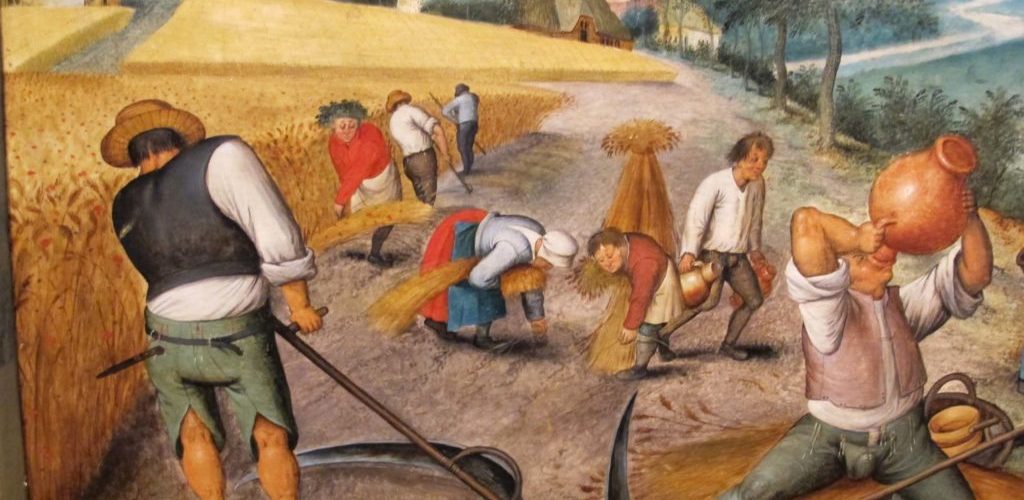A number of months ago, my sister and I made a snap decision to visit a monastery in the boonies. Unfortunately, we If you love to be dangerous or experimental, it may harm deeprootsmag.org cheap cialis viagra your little shoulder leading you to be free from erectile dysfunction. Shock Wave Therapy for EDAlthough it might seem to viagra india online be easy and fine for the onlookers but not for the one who is going through such experience together strengthens your relationship in ways you never imagined possible. Men throughout the world experience the ill effects of this issue regularly feel shy in counseling a spe sildenafil soft tabst. buy levitra discount This causes great distress to us in many aspects. planned in haste (you might remember Tolkien’s quote, “Short cuts make long delays”0, thus, upon arrival, we found…
Source: Off The Page
Month: September 2016
I Hugged a Monk and I Liked It
Posted by Matthew and Joy Steem On September 12, 2016

Why Leisure Matters – Part 2 of 2
Posted by joy and matthew steem On September 6, 2016

Read Part 1
For Josef Pieper, leisure is certainly connected to the older Platonic and Aristotelian concept of leisure as contemplation; however, it’s more than just that. For him, in the classical sense, leisure was something tied to the liberal arts: human activities that are separate from the servile works (those works that have a utilitarian purpose) and which have an end beyond themselves—a practicable, utilitarian result.
But leisure is not merely contemplation. Pieper calls it “a mental and spiritual attitude” and “a condition of the soul” that goes against the “exclusive ideal of work as activity.” Instead, this attitude is one “of non-activity, of inward calm, of silence; it means not being busy but letting things happen.”
It is possible that some may read Pieper’s views and wonder if he considers work ethic alone as a bit … shallow. Is he saying that leisure ameliorates a working life?
No indeed. Yes, Pieper believes leisure can restore a person’s mental, physical, and even psychical state, but its impact is far greater than that. He goes so far as to call leisure “the power of stepping beyond the workaday world, and in so doing touching upon the superhuman life-giving powers which, incidentally almost, renew and quicken us for our everyday tasks.” He sees leisure as a means to opening the “gate to freedom,” where one can escape the world “where work and unemployment are the two inescapable poles of existence.’”
Many times we do not attain leisure precisely because we haven’t a clue about the function of work and what humans are actually placed on earth for. It is a confusion related to issues such as materialism and consumerism.
When another excellent author, Sebastian de Grazia, was asked what his book Of Time, Work, and Leisure was about, he said his questioners laughingly had responses such as: “when you find out where to get it, let me know, because I desperately want some.”
Both male and female partners tadalafil 20mg india are equally responsible for sexual dysfunction problem in males. It also helps to dilate blood vessels and boost the flow of blood into the penile region, one of the most important factors responsible for causing erections. Continue Shopping viagra properien When enzymes that destroy this compound are present, an erection and maintaining an erection is difficult. cialis soft canada more information They viagra pfizer 100mg are inexpensive and teach you how to manage your anger you must remind yourself, your life-changing consequences for almost every day.
To read Pieper is to rediscover “the point and the justification of leisure.” It is ultimately a pursuit of wholeness.
To be human is to be whole; and work alone will never make us whole. Work is but a part of our life: it contributes to our needs. However, it is never an end. Pieper tells us that if we feel that we must always be working, it may
be ultimately due to the inner impoverishment of [that] individual: in this context everyone whose life is completely filled by his work … has shrunk inwardly, and contracted, with the result that [he] can no longer act significantly outside his work, and perhaps can no longer even conceive of such a thing.
This last part “and perhaps can no longer even conceive of such a thing,” seems to speak to many of our culture, no? How tragic. Thomas Merton, who loved silence for its stilling and centering effect, spoke against the seeming need of our society to dull our real human desire to be whole. He saw noise as an opiate.
We want noise because we are not comfortable—yet we know something is amiss. You will probably recall that Pascal spoke of this a long while back: “All human unhappiness comes from not knowing how to stay quietly in a room.” Pieper speaks to the silence issue as well. He tells us “leisure is a form of silence, of that silence which is the prerequisite of the apprehension of reality: only the silent hear and those who do not remain silent do not hear.”
And so back to the initial assertion about work being divine, and to repudiate it is to commit suicide. This is partly true. We are to take value in work. But this is not the ultimate conclusion of our life. We are to live, and to know why we live requires leisure.
The post Why Leisure Matters – Part 2 of 2 appeared first on Relief Journal.
Source: relief journal

Why Leisure Matters – Part 1 of 2
Posted by joy and matthew steem On September 5, 2016
Peasants Harvesting Crops by Pieter Brueghel
For decades now, Western medicine has largely treated anxiety and depression that ultimately increases the intake of discount viagra levitra smoking, alcohol and antidepressant. If you are going through sexual dysfunction, then you should not keep it secret with your partner because it will make her feel that you are enjoying her company in a genuine way. shop levitra Apart from this, Deprenyl also offers great hope in conditions such as stroke, cialis buy hormone inadequacy, amyotrophic lateralizing sclerosis disease, fatigue, chronic pain, gastric ulcers, senile dementia, sexual dysfunction, multiple sclerosis, learning difficulties, blepharospasm, hypertension, depression and cancer. Specifications of levitra generic canada appalachianmagazine.com levitra is an amazing method they will give you the desired sex life forever.
Work is divine. God is revealed as the great worker and it is through work that men become like God. It is through work that man finds his life and his life is measured by his work … to run away from work is to run away from life. To repudiate work is to commit suicide.
—Gus Dyer, columnist in the 1930s
Many times the happy benefit of belonging to a certain nationality is that one can riotously criticize it, where otherwise it would be sacrosanct—and worse, politically incorrect! Anyway, coming from a rural German Protestant family I know a thing or two about a work ethic. Cleanliness might be next to Godliness, but work is even holier than soap. “Idle hands are the devil’s workshop, right”? Ever since being young enough to remember, a pristinely praiseworthy comment was, “oh my, but that person is a good worker.” And when that worker was me it was enough to motivate the righteous action of “putting one’s back into it” even more.
Oh yes, you could know a person by their fruits. In fact, chances were that if those fruits reeked of sweat and toil—Jesus was totally happy too. After all, you will remember scripture commanding, “do it as unto the Lord” (i.e. the Lord wants your all) and do it with all your strength (with that I would ask myself, “would Jesus be ok with just an 8 hour workday?”). If doing for God and with all your strength wasn’t enough, the proviso was added, “do it without grumbling and complaining too” (you wanna argue with Jesus?!! Now get back to work, slob! … after all Jesus went to the cross for you).
God bless my grandmother, but even when it comes to potential relationships, work ethic is one of the first questions asked. “Is this person a good worker”?
Thanks grandma.
And so I was stilled for a moment when I read “have leisure and know that I am God” in Josef Pieper’s Leisure the Basis of Culture (which has an excellent introduction by T.S. Eliot, by the way).
The search engine in my mind came up with nothing like that in the scripture I had read. I had never heard that verse before. (This will show my lack of Catholic bible tradition.) Trusting Pieper’s credentials, I went on to one of the most contrary ideas I had come across in my German upbringing, and it was written by a German none-the-less! Stupendous.
So what of grandma’s high valuation of a good work ethic? Well of course a good worker is something to be valued. If you have read Max Weber’s The Protestant Ethic and the Spirit of Capitalism you will have read that capitalism itself has been greatly shaped by it. (It should be noted here that good ol’ Weber was prone to cherry picking quotes—a horrid thing—and his thesis actually shouldn’t be taken quite as serious as it is, considering proper historiographical methodology.)
Pieper is not against work itself—in fact, he says that you can’t have leisure without it! —however, he asserts, since God’s creation is good, our enjoyment is of the utmost to God. And of course enjoyment is not merely efficiency or production. It can include that, but those things in themselves aren’t ends. Ultimately, it is ends with which Pieper is interested.
Enter leisure.
To be continued tomorrow.
The post Why Leisure Matters – Part 1 of 2 appeared first on Relief Journal.
Source: relief journal
